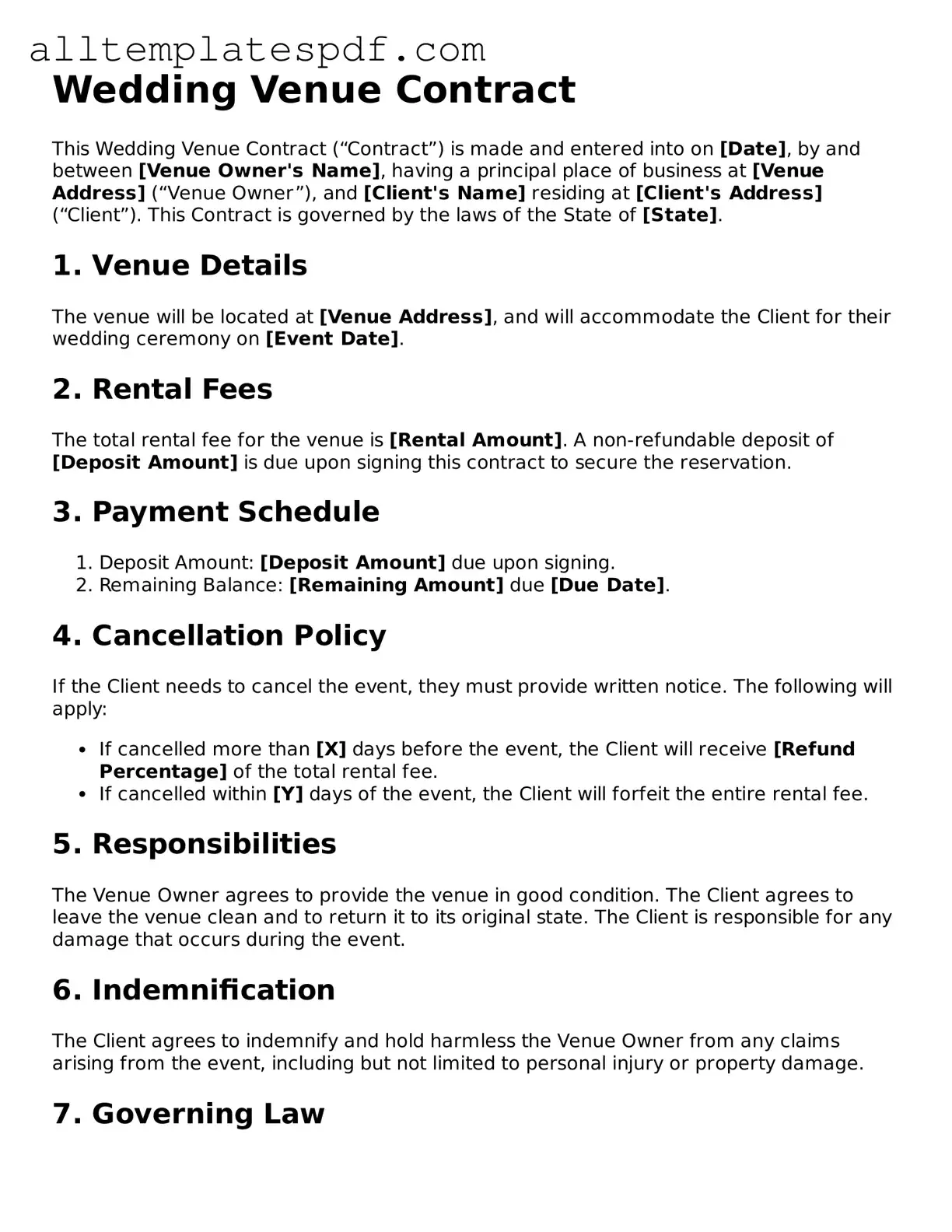Filling out a Wedding Venue Contract can be a daunting task, especially when emotions run high during the wedding planning process. One common mistake people make is not reading the entire contract thoroughly. It’s easy to skim through the document, but overlooking important details can lead to misunderstandings later. Every clause matters, and taking the time to understand each section can save couples from unexpected surprises.
Another frequent error involves failing to specify the date and time clearly. Couples often assume that the venue will automatically hold their desired date, but this is not always the case. It's crucial to double-check that the date is correct and that the time frame aligns with the couple's vision for their special day. Miscommunication here can lead to double bookings or scheduling conflicts.
Many couples neglect to confirm the total cost of the venue, including any additional fees. While the initial price may seem reasonable, hidden charges such as cleaning fees, overtime costs, or service charges can inflate the overall expense. It’s essential to clarify the full financial commitment before signing on the dotted line.
Another mistake often made is not inquiring about the venue's cancellation policy. Life can be unpredictable, and plans may change. Understanding the terms surrounding cancellations or rescheduling is vital. Couples should ensure they know the potential financial implications if they need to alter their plans.
Additionally, couples sometimes overlook the importance of discussing vendor restrictions. Some venues have specific rules regarding which vendors can be used for catering, photography, or entertainment. Failing to address this can lead to disappointment if preferred vendors are not allowed on the premises.
Moreover, many people forget to consider the venue's capacity limits. It’s easy to envision a grand celebration, but if the venue cannot accommodate the guest list, it can lead to uncomfortable situations. Couples should ensure that their estimated guest count aligns with the venue's capacity.
Another common oversight is not addressing accessibility needs. Ensuring that the venue is accessible for all guests, including those with disabilities, is crucial. Couples should inquire about ramps, restrooms, and parking to ensure everyone can enjoy the celebration without barriers.
Lastly, many couples fail to clarify the payment schedule and deadlines. Knowing when deposits are due and when the final payment must be made can prevent financial strain. Couples should also confirm accepted payment methods to avoid any last-minute complications.
In summary, being mindful of these common mistakes can lead to a smoother planning process. Couples should take their time, ask questions, and ensure every detail is addressed in the Wedding Venue Contract. Doing so will pave the way for a more enjoyable and stress-free celebration.

